Introduction
Alexander The Great was a military genius who conquered most of the world during his time.
However, western historians have distorted this information to make him appear more impressive than he was, even distorting some of the events of “Alexanders Invasion of India”
Alexander’s last Campaign – The Invasion of India – is shrouded in myth. What really happened? Let’s find it out.
Conflicting Views
Some say he conquered India, While others argue that his hubris led him to overreach and that he suffered disastrous results.
Who was Alexander The Great?
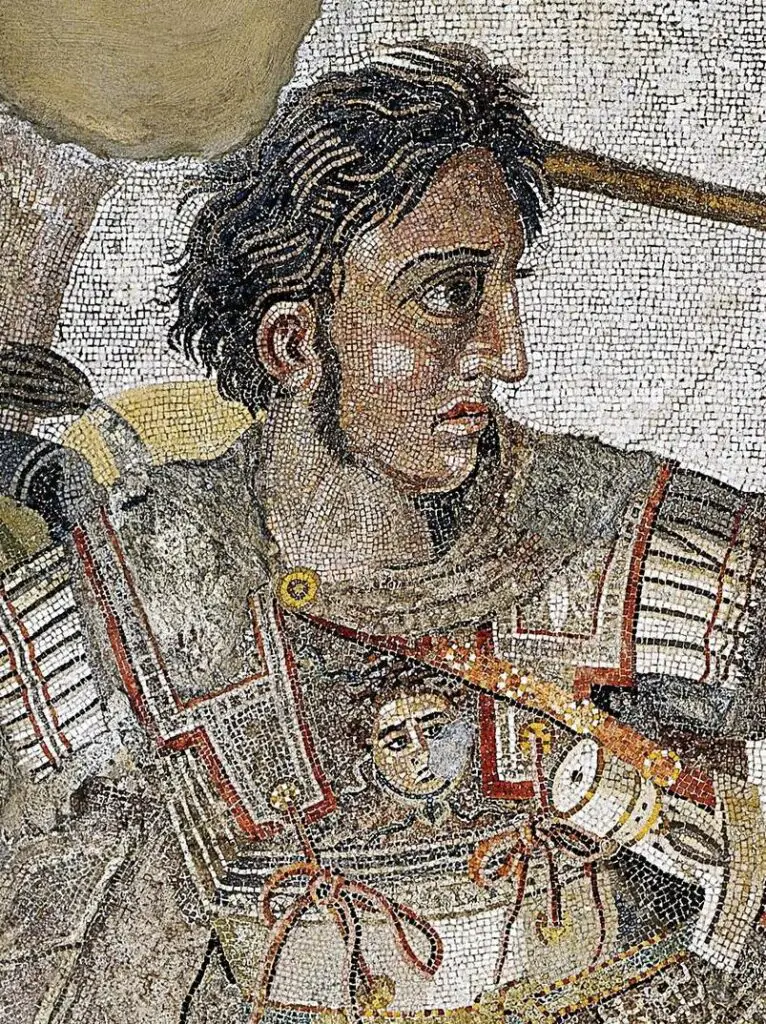
In 336 BC, Alexander III became king of Macedon after his father Philip II.
He strengthened his hold on Greece and moved on to conquer Asia following his father’s footsteps.
He decisively defeated the Persians and took over their territories. In 327 BC. Alexander the Great traveled to India in search of new land and riches.
Why did Alexander want to conquer India?
- He was greatly impressed by stories of the country’s prosperity and decided to invade India
- Alexander wanted to conquer the whole world and at that time it was argued that the eastern boundaries of India were the end of the known world.
Alexander’s Invasion of India.
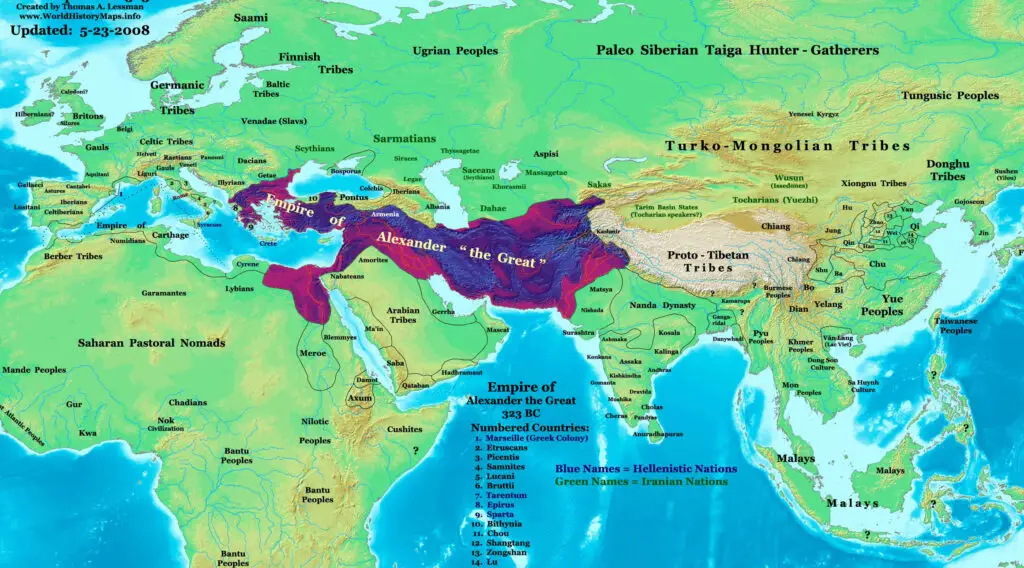
He clashed with local kingdoms on his way there and eventually reached the northwest of the subcontinent.
Alexander’s fortune rose due to the treachery of Ambhi of Takshila and Sashigupta, who joined forces with him.
He then defeated and destroyed the small local kingdoms in the area. Crossing the Sindhu, he held court in Ambhi’s Takshilla to plan his next steps.
Politics of the Region under the Alexanders Invasion of India.
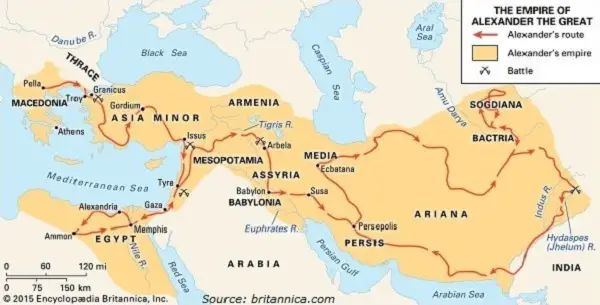
Alexander encountered Paurava, the ruler of Kaikeya who was at war with Ambhi. Paurava was the most powerful ruler in the northwest.
The legendary battle of the Hydaspes was fought between Alexander and King Porus in 326 BC. It was a significant event in Indian history.
Battle of the Hydaspes(326 BC).
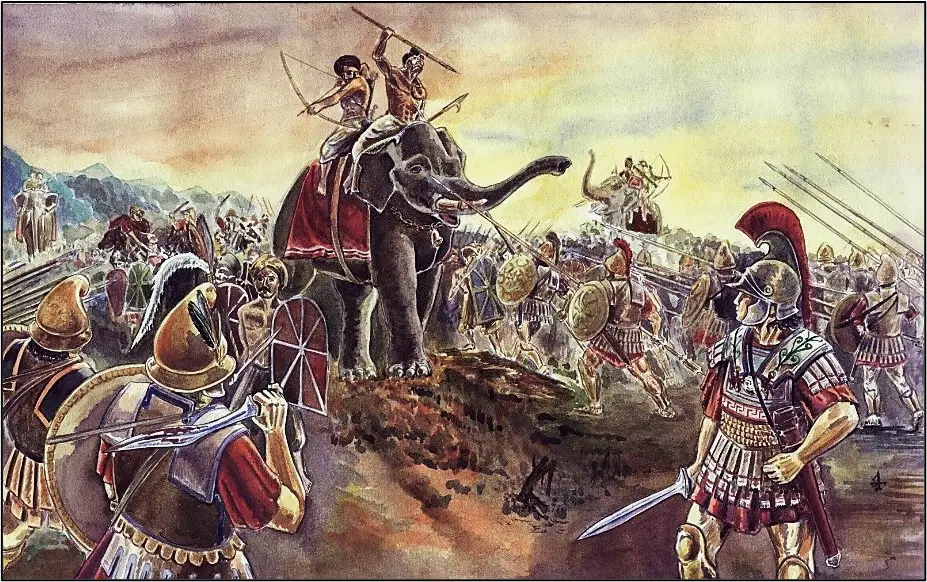
The battle took place on the banks of the Jhelum River in the Punjab region of the Indian Subcontinent. according to Western historians, the battle resulted in a Greek victory and the surrender of Porus. But the Greeks made no such claim.
In the ancient world, Greek contemporary writers described the Battle of Hydaspes as the hardest fought of all Alexander’s battles.
Frank Lee Holt, a professor of ancient history at the University of Houston, writes in his book, Alexander the Great and the Mystery of the Elephant Medallions:
“The only reference in Arrian’s history to a victory celebration by Alexander’s army was after the battle with Porus”.
In the wake of their many victories over the Persians, Alexander and his army displayed little to no fanfare.
For example,
- There was no grand celebration after the Battle of Gaugamela, where they defeated a force of 200,000 Persians.
- Likewise, they did not announce any wild festivities after the Battle of Issus, where they defeated a mixed force of Persian cavalry and Greek mercenaries.
after the battle of Hydaspes, the Macedonians may have celebrated because they considered themselves lucky to have survived.
If Porus had lost, the Hindu army, known for its elephant corps, could have easily defeated them. However, Alexander was impressed by Porus, according to the Greeks, and he rewarded him by giving back his kingdom and the territories of King Ambi of Takshila, who had fought alongside the Macedonians.
This doesn’t make a lot of sense! Alexander rewarded Ambi, who had become his ally with the understanding that he would receive Porus’s kingdom, despite the fact that Ambi’s army had just mauled the Macedonians.
Conclusion of The Battle of the Hydaspes (326 BC).
The only possible answer is at the Battle of Hydaspes, where the Macedonians realized they are dealing with an uncommonly brave enemy.
Sensing defeat, they called for a truce, which Porus accepted. The Indian king struck a bargain – in return for Ambhi’s territories.
Which would secure his frontiers, Porus would assist the Macedonians in leaving India safely.
Western historians provide another illogical excuse, stating that Alexander withdrew from India primarily because his troops were exhausted and on the verge of mutiny.
If German soldiers had behaved similarly in World War II, they would have faced immediate execution on the spot.
In Alexander’s Time, the punishment for such behavior was crucifixion.
Conclusion of Alexander’s Invasion of India.
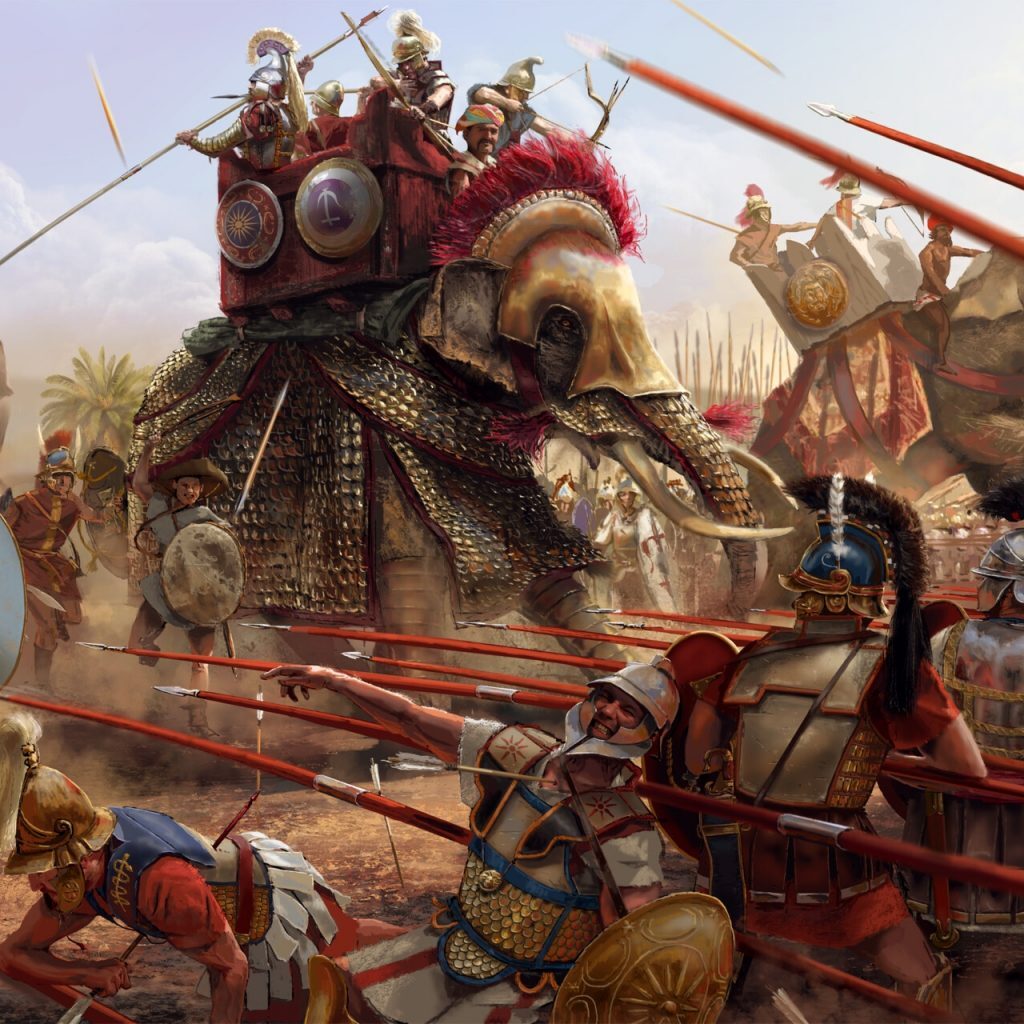
In Conclusion, Alexader’s Invasion of India was a failure. He sacrificed a large number of troops without gaining any significant territory or leaving any lasting impact on Indian culture and society.
Most reports claim that he died soon after returning home from India. Possibly from a wound sustained during one of the battles.
India was not such a great battleground for him – it ended up destroying his army and reputation.
Thank You so much guys for reading my blog. I would love to hear your views in the comment section.
More Content Like This:
- The Rise of the Great Maratha Empire!
- The Mughal Empire: A Fascinating Story of India’s Islamic Past
- Exploring the Magnificence of the Great “Vijayanagara Empire”
- India’s Ideological Subversion: The Clash of Nationalism and Colonialism
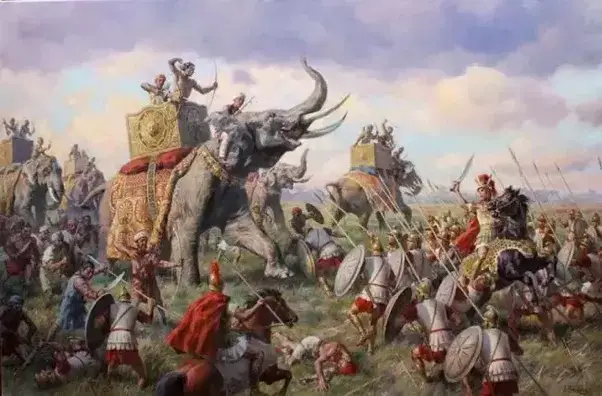

[…] The Battle of Hydaspes, fought in 326 BCE was a historical battle between the armies that belonged to Alexander the Great and King Porus of the Paurava Kingdom. The battle occurred close to the Jhelum River in present-day Punjab, Pakistan. […]